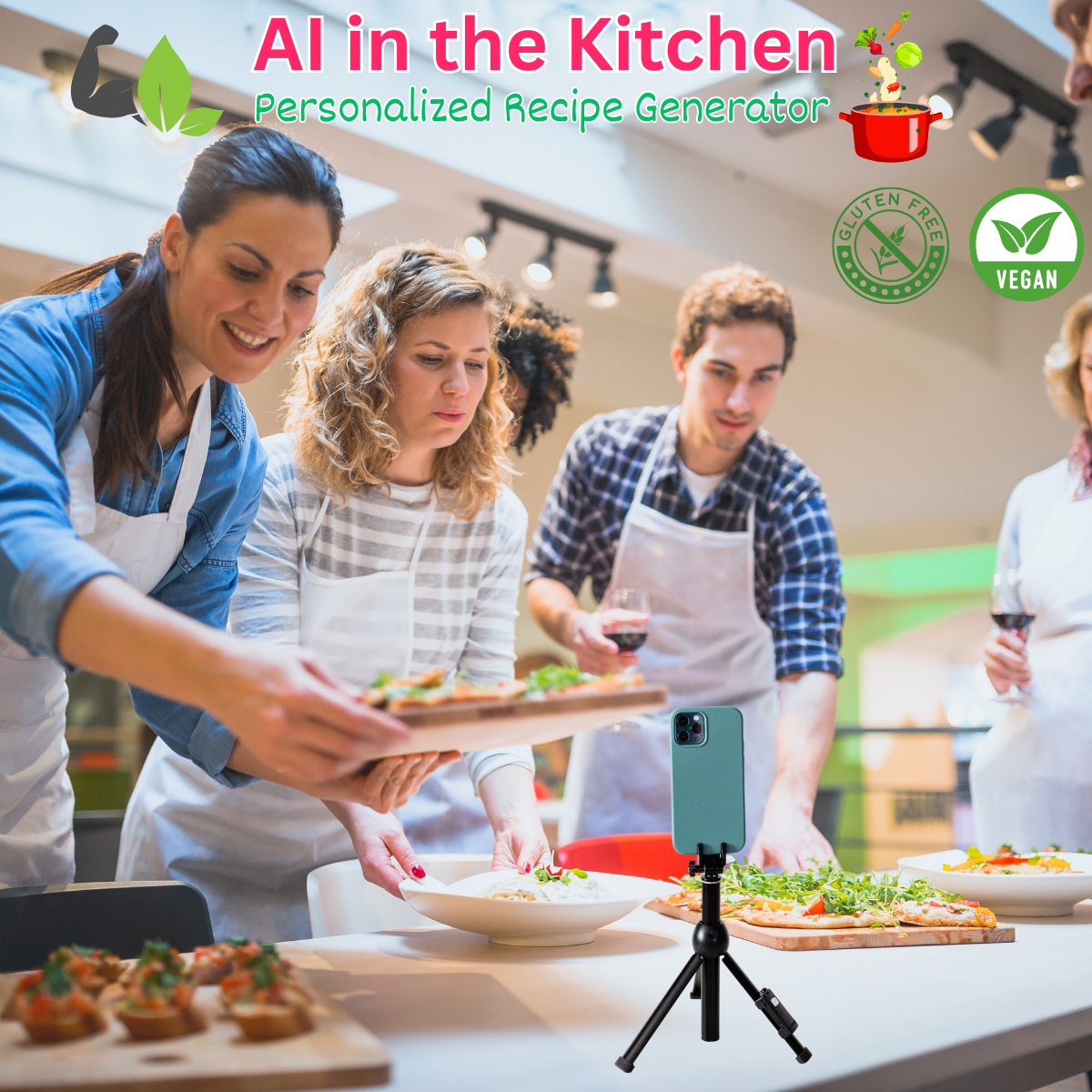Posted At: Aug 14, 2025 - 538 Views

Unlocking the Future of Food: How AI Personalized Recipe Generators Are Changing the Way We Cook
In an era where artificial intelligence is reshaping industries—from finance to healthcare—its foray into the kitchen is both exciting and revolutionary. AI personalized recipe generators are transforming the way we approach cooking, making mealtime more creative, efficient, and health-conscious. Whether you’re a busy professional, a health enthusiast, or someone with specific dietary needs, these intelligent tools can craft meal ideas tailored just for you.
What Is an AI Personalized Recipe Generator?
At its core, an AI personalized recipe generator uses machine learning algorithms and natural language processing (NLP) to create cooking recipes based on individual preferences. These preferences can include:
- Dietary restrictions (e.g., vegan, gluten-free, low-carb)
- Allergies (e.g., nuts, dairy, shellfish)
- Health goals (e.g., weight loss, muscle gain)
- Cuisine preferences (e.g., Mediterranean, Indian, Thai)
- Available ingredients
- Time constraints
By analyzing a user’s input and cross-referencing it with vast culinary databases and nutritional knowledge, the AI crafts unique recipes that not only satisfy the user’s taste but also align with their goals.
How It Works: Behind the Scenes
- Data Collection and User Input
- Users typically fill out a form or interact with a chatbot, indicating their preferences, goals, and available ingredients.
- Some systems integrate with health tracking apps or smart kitchen appliances for deeper personalization.
- Users typically fill out a form or interact with a chatbot, indicating their preferences, goals, and available ingredients.
- Nutritional Analysis
- The AI uses nutritional databases (e.g., USDA, FoodData Central) to ensure each recipe meets specific dietary criteria.
- Advanced models may also take into account the user’s BMI, activity levels, or health conditions.
- The AI uses nutritional databases (e.g., USDA, FoodData Central) to ensure each recipe meets specific dietary criteria.
- Recipe Generation
- Using natural language generation (NLG), the AI crafts a full recipe including ingredients, step-by-step instructions, cooking time, and serving sizes.
- Some platforms also include visual aids, shopping lists, and meal plans for the week.
- Using natural language generation (NLG), the AI crafts a full recipe including ingredients, step-by-step instructions, cooking time, and serving sizes.
- Feedback and Iteration
- Users can rate recipes, which helps the AI refine future suggestions.
- The more the system is used, the more accurate and personalized the results become.
- Users can rate recipes, which helps the AI refine future suggestions.
Key Benefits
1. Customization at Scale
Unlike traditional cookbooks or even food blogs, AI generators can offer infinite variations of a single recipe based on specific user input. For example, a lasagna recipe can be customized to be keto, gluten-free, or even adapted to use only microwave cooking.
2. Health-Focused Meal Planning
With obesity and diet-related health issues on the rise, AI-generated meals can help users maintain nutritional balance, track macros, and avoid harmful ingredients.
3. Waste Reduction
By generating recipes based on the ingredients you already have, AI can help reduce food waste and promote sustainable cooking practices.
4. Convenience and Time-Saving
Busy users can get quick, ready-to-cook recipes that match their pantry and schedule—no need to scroll through irrelevant options online.
Real-World Applications and Products
Several companies and platforms are already integrating AI into recipe personalization:
- Whisk: Allows users to turn ingredients into custom meal plans and integrates with smart kitchen appliances.
- Yummly: Uses AI to suggest recipes based on taste preferences and dietary needs.
- Foodvisor: Combines meal tracking with AI-generated food suggestions for health-focused users.
- ChatGPT Plugins and APIs: Developers can use AI models like GPT-4 to build custom recipe bots or apps.
Challenges and Limitations
Despite its promise, the technology is not without hurdles:
- Cultural Nuance: AI may struggle with the cultural context and authenticity of traditional recipes.
- Taste Prediction: Accurately predicting flavor profiles and personal taste remains a complex task.
- Ingredient Availability: Some recipes may suggest hard-to-find ingredients without checking local availability.
- User Trust: Some users may be skeptical of nutritional accuracy or recipe reliability.
The Future of AI in the Kitchen
As AI continues to evolve, we can expect even deeper integrations:
- Voice Assistants and Smart Kitchens: Voice-guided AI chefs that adapt as you cook.
- AI + AR: Augmented reality overlays to help with cooking techniques or plating.
- Integration with Grocery Delivery: Auto-generation of shopping lists and one-click ordering.
Ultimately, AI personalized recipe generators are a powerful step toward smarter, healthier, and more efficient cooking. They’re not here to replace chefs but to empower everyday cooks with tools that make preparing meals more intuitive and tailored than ever before.
In a world where personalization is becoming the norm—from Spotify playlists to Netflix queues—why should food be any different? AI-powered recipe generators represent the next frontier in the food tech revolution, where creativity meets computation. Whether you’re cooking for health, pleasure, or necessity, your next great meal could be just one prompt away.
